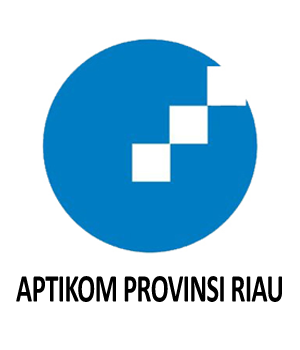Analysis of the Impact of Open-Source Software on Reducing the Use of Pirated Software by Educators
Abstract
One of the motivations for using pirated software can be caused by the need for more awareness of the importance of respecting the intellectual property rights of the software. Even in the college environment, there is software piracy. Educators and students freely use illegal software. While mean it is an environment for intellectuals and academics to gather, a place to study up to the highest level of education. This area should become an example for the surrounding community in respecting the copyrights of other things. One alternative to reduce the emergence of acts of using pirated software is to use open-source software. It is a free software version to use at will without pirating it. In this study, we want to know the influence of motivation in using pirated through the presence of open-source software. The data taken is among educators, as many as 86 randomly selected respondents. The data is processed quantitatively with the regression method. The results showed that the motivational factor in pirated software did not tremendously affect the factor of open-source software. It is only 14%, and the rest had no effect.
Downloads
References
Q. T. Pham, N. M. Dang, and D. T. Nguyen, “Factors Affecting on the Digital Piracy Behavior: An Empirical Study in Vietnam,” Journal of theoretical and applied electronic commerce research, vol. 15, no. 2, pp. 0–0, 2020, doi: 10.4067/S0718-18762020000200108.
W. A. Bradley and J. Kolev, “How does digital piracy affect innovation? Evidence from software firms,” Research Policy, vol. 52, no. 3, p. 104701, 2023, doi: https://doi.org/10.1016/j.respol.2022.104701.
M. Gergely and V. S. Rao, “A Cross-National Experimental Examination of Software Piracy Behavior,” in Twenty-third Americas Conference on Information Systems, Boston, 2017, pp. 1–5.
Y. Fang and Y. Wang, “Software Piracy in Developing Countries: An Empirical Study,” Telematics and Informatics, vol. 70, 2022.
M. Abdullah and M. Noh, “Understanding Software Piracy: Insights from User Perspectives,” Comput Human Behav, vol. 139, 2023.
R. Georgieva, “The Impact of Software Piracy on the Software Industry: A Review of Recent Developments,” J Bus Res, vol. 145, pp. 123–135, 2023.
A. Chaudhuri, “Piracy, Ethics, and the Software Industry: A Global Perspective,” nternational Journal of Information Management, vol. 64, 2022.
Y. , Yuan and X. Zhao, “Understanding the Drivers of Software Piracy: A Meta-Analysis,” Information & Management, vol. 58, no. 5, 2021.
R. Munggaran, “Pemanfaatan Open Source Software Pendidikanoleh Mahasiswa Dalam Rangka Implementasi Undang- Undang No. 19 Tahun 2002 Tentang Hak Cipta Intellectual Property Rights,” Universitas Pendidikan Indonesia, 2012.
N. A. Omar, Z. Z. Mohd Zakuan, and R. Saian, “Software Piracy Detection Model Using Ant Colony Optimization Algorithm,” Journal of Physics: Conference Series, vol. 855, p. 012031, Jun. 2017, doi: 10.1088/1742-6596/855/1/012031.
A. Mardalis and P. S. Dharma, “Faktor-Faktor Yang Mempengaruhi Penggunaan Software Bajakan Di Kalangan Mahasiswa,” BENEFIT Jurnal Manajemen dan Bisnis, vol. 16, no. 2, pp. 99–105, 2012.
A. Rahman, M. Zafar, and S. Ali, “The impact of intellectual property awareness on software piracy in educational institutions,” Journal of Intellectual Property Management, vol. 15, no. 2, pp. 112–130, 2023.
L. Smith and K. Johnson, “Cultural attitudes towards software piracy among students and educators,” Journal of Educational Ethics, vol. 11, no. 1, pp. 88–105, 2023.
R. Kumar and P. Singh, “ Economic and ethical factors influencing software piracy in higher education,” International Journal of Educational Technology, vol. 28, no. 4, pp. 225–240, 2022.
M. Alvi, R. Abbas, and K. Shahzad, “he Role of Price and Access in Pirated Software Usage in Higher Education,” J Educ Techno Soc, vol. 24, no. 3, pp. 65–76, 2021.
Q. Li, Z. Xu, and Z. Tan, “Piracy in the Classroom: Factors Driving Educational Software Piracy in Universities,” Int J Educ Res, vol. 109, 2022.
J. Lin, Y. Wu, and F. Chen, “Addressing software piracy through the promotion of open-source alternatives in universities,” Journal of Open Source Systems, vol. 19, no. 3, pp. 145–160, 2023.
K. Ahmed, W. Tan, and J. Lee, “A holistic approach to reducing software piracy in higher education: A case study in Asia,” Journal of Technology and Education Policy, vol. 34, no. 1, pp. 56–78, 2023.
Basrul, H. Hazrullah, and Y. Maulida, “The Effect Of Motivational Factors On Usage Of Pirated Software Among Lecturers,” Cyberspace: Jurnal Pendidikan Teknologi Informasi, vol. 5, no. 2, p. 121, Oct. 2021.
A. Hossain, A. K. Das, N. Tasnim Mim, J. Hoque, and R. A. Tuhin, “Software Piracy: Factors and Profiling,” in 2019 2nd International Conference on Applied Information Technology and Innovation (ICAITI), IEEE, Sep. 2019, pp. 213–219. doi: 10.1109/ICAITI48442.2019.8982130.
E. Halme, M. Jantunen, V. Vakkuri, K.-K. Kemell, and P. Abrahamsson, “Making ethics practical: User stories as a way of implementing ethical consideration in Software Engineering,” Inf Softw Technol, vol. 167, p. 107379, 2024, doi: https://doi.org/10.1016/j.infsof.2023.107379.
I. Akhlis, “Source Untuk Menunjang Kegiatan Akademik Di Sma Negeri 12 Semarang,” Rekayasa: Jurnal Penerapan Teknologi dan Pembelajaran, vol. 11, no. 2, 2013.
T. White, “Motivations Behind Software Piracy: A Comprehensive Review,” Journal of Information Technology, vol. 11, no. 2, pp. 150–162, 2024.
C. Lee, “Regression Assumptions in Software Studies,” Journal of Statistical Analysis, vol. 10, no. 1, pp. 22–34, 2023.
R. Green, “Barriers to Learning Open-Source Software,” Journal of Computer Science Education, vol. 9, no. 3, pp. 55–67, 2023.
S. Grey, “Community Engagement in Open-Source Projects: A Pathway to Knowledge,” Journal of Community Informatics, vol. 7, no. 3, pp. 200–215, 2024.
Copyright (c) 2024 Basrul Abdul Majid, Haya Fadiya, Khairan Ar

This work is licensed under a Creative Commons Attribution-ShareAlike 4.0 International License.
This is an open-access article distributed under the terms of the Creative Commons Attribution-ShareAlike 4.0 International License which permits unrestricted use, distribution, and reproduction in any medium. Users are allowed to read, download, copy, distribute, search, or link to full-text articles in this journal without asking by giving appropriate credit, provide a link to the license, and indicate if changes were made. All of the remix, transform, or build upon the material must distribute the contributions under the same license as the original.















